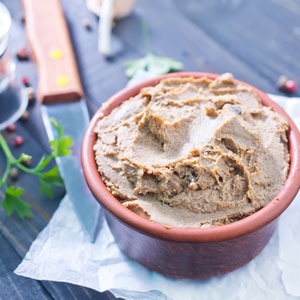
While it is important for us to have a balanced diet that supplies all the necessary minerals to keep our bodies functioning at an optimum level, certain minerals, such as iron and iodine, are vital at certain stages of our development to ensure that our brains and nervous systems develop normally.
Iron
Iron is a mineral that is used to produce healthy haemoglobin (a biological pigment contained in the red blood cells) that is capable of transporting oxygen to the entire body. All our cells require oxygen to survive, but the brain is the most sensitive organ in the body when it comes to oxygen deprivation.
It is, therefore, understandable that an iron deficiency, which causes anaemia and reduces the capacity of the blood to transport oxygen, will have a negative effect on brain development before birth and for the first two years of life, as well as on brain function at any stage of a person’s life.
The severity and duration of iron deficiency will determine how much damage occurs. Studies have shown that the brain is most sensitive to iron deficiency during the first two years of life. If an infant or toddler is exposed to iron deficiency during these two vital years, the damage to the brain and nervous system can be permanent.
In children older than two years, decreased mental function and poor achievement at school, which is caused by iron deficiency and anaemia, can be reversed if the anaemia is treated. Problems with cognitive function and lack of psychomotor development are also linked to iron deficiency in children.
It is, therefore, essential that pregnant women should have an adequate iron intake for the duration of their pregnancy. This is the reason why most pregnant women are advised to take iron-folic acid supplements (folic acid is also important for the formation of healthy haemoglobin). Breast milk is not rich in iron and infants are often given a paediatric iron supplement to boost their iron intake.
If you, or your child, feel listless, tire easily, tend to be forgetful, irritable and nervous, then it may be a good idea to have a medical checkup and a blood test to see if you are iron-deficient. Certain behaviours such as ‘pica’ (the urge to eat soil or ice) are also associated with iron deficiency in the diet.
Food source of iron
The following foods are rich sources of iron that is easily absorbed by the human body (i.e. bioavailable):
- Liver and organ meats
- Red meat (beef, mutton, pork and venison)
- Poultry
- Fish
- Egg yolk
- Iron-fortified breakfast cereals
- Iron-fortified flour and maize meal (the SA Government has passed legislation that these staple foods must be fortified with a number of vitamins and minerals, including iron)
- Dried fruit
Iron in other plant food sources (e.g. spinach) is not as bioavailable as in the foods listed above, because chemicals like phytates bind the iron. The diets of pregnant and breastfeeding women, young children, teenagers, and women with child-bearing capacity, should, therefore, include meat, eggs and liver.
Serious iron deficiencies need to be treated either by iron injections or supplements, and it is important to keep in mind that iron supplements may have to be taken for three months or longer to replenish depleted iron reserves in the body.
Iodine
In the past the most common cause of brain damage and mental deficiency was lack of iodine in the diet, which caused cretinism in newborn babies. Ironically this is also the most preventable dietary cause of mental impairment and nowadays most cases of maternal goitre and infant cretinism are prevented by iodisation of table salt.
In South Africa, table salt has been enriched with iodine for many years and the incidence of cretinism has decreased. Nowadays, the number of individuals who are at risk of iodine deficiency is probably very small, e.g. persons who do not use commercial table salt.
If you do not use standard table salt (e.g. because of high blood pressure), then it is essential that you eat plenty of seafood and fish, or take kelp tablets, especially if you are pregnant or breastfeeding. Discuss your iodine intake with your doctor if you are contemplating pregnancy and do not use any iodised table salt.
Food sources of iodine:
- Seafood
- Fish
- Leafy green vegetables
- Kelp tablets
The importance of an adequate mineral intake once again underlines how vital it is to eat a balanced diet that provides all the nutrients we require for good health.




 Publications
Publications
 Partners
Partners










